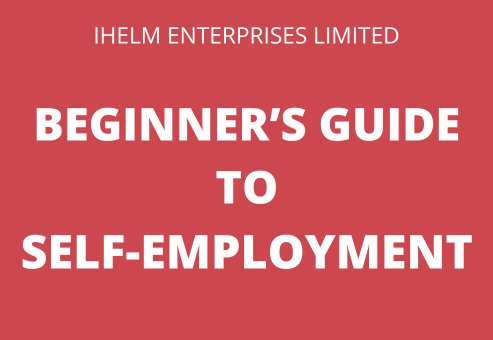During October’s Facebook Live, I talked about how to get started as self-employed in the UK.
Self-employment offers a tantalizing promise of freedom and flexibility, allowing you to be your own boss and control your career path. In the UK, this career option is increasingly popular, with over 4.2 million self-employed individuals as of July 2024. However, diving into self-employment requires careful planning and an understanding of various legal and financial responsibilities. This guide aims to provide you with a comprehensive roadmap to help you get started on your self-employment journey.
Step 1: Evaluate Your Skills and Business Idea
Before you take the leap into self-employment, it’s crucial to evaluate your skills and business idea. Consider the following:
– Skills and Experience: Identify your strengths, skills, and experience. What services or products can you offer? Do you have a unique selling proposition (USP)?
– Market Research: Conduct thorough market research to understand your target audience, competitors, and demand for your product or service.
– Feasibility: Assess the feasibility of your business idea. Can you generate sufficient income to sustain yourself?
Step 2: Choose Your Business Structure
In the UK, you can operate your self-employed business under several structures. The most common are:
– Sole Trader: The simplest form, where you run your business as an individual. You keep all profits after tax but are personally responsible for any losses.
– Partnership: If you’re starting a business with someone else, you can form a partnership. Each partner shares responsibility for the business.
– Limited Company: A more complex structure, where your business is a separate legal entity, and you would be the sole director with no employees. This offers limited liability protection but comes with more regulatory requirements.
Step 3: Register Your Business
Depending on the structure you choose, you’ll need to register your business:
– Sole Trader: Register with HM Revenue and Customs (HMRC) as soon as you start trading. You’ll need to file a self-assessment tax return every year.
– Partnership: Register the partnership with HMRC and each partner needs to submit a self-assessment tax return.
– Limited Company: Register with Companies House and comply with additional reporting requirements. You must also register with HMRC within three months of starting your business. If you become employed by the company, you will need to register as an employer. You may also find you need to register yourself for self-assessment as a director.
Step 4: Set Up a Business Bank Account
Even though it’s not a legal requirement for sole traders, it’s advisable to have a separate business bank account. This helps keep your business and personal finances separate, making it easier to manage your accounts and taxes. For limited companies, having a separate business bank account is a legal requirement.
Step 5: Understand Your Tax Obligations
As a self-employed individual, you have several tax obligations:
– Income Tax: You’ll need to pay income tax on your business profits. The amount depends on your earnings. If you are set up as a Limited Company, the income tax is dealt with differently as you are taxed on your wages or drawings from the business as well as dividends or any other type of untaxed income you have taken from the company, not on the taxable profits of the business.
– National Insurance Contributions (NICs): As a sole trader, you’ll need to pay Class 2 and Class 4 NICs. If you are registered as a limited company, you would be responsible for paying Class 1 NIC through the salary you have from the company. The company would pay both the employee NICs and employer NICs.
– Value Added Tax (VAT): If your turnover exceeds the VAT threshold (currently £90,000), you must register for VAT and charge it on your sales.
– Corporation Tax: If you run a limited company, you’ll need to pay corporation tax on your profits.
Step 6: Keep Accurate Records
Keeping accurate and up-to-date records of your income and expenses is essential for managing your business finances and fulfilling your tax obligations. Invest in good accounting software or hire an accountant to help you manage your records.
Step 7: Get the Necessary Licenses and Insurance
Depending on your business type, you may need specific licenses or permits to operate legally. Check with your local council or relevant authorities to ensure you have the necessary permissions. Additionally, consider getting business insurance to protect yourself against potential risks and liabilities.
Step 8: Market Your Business
Once your business is set up, it’s time to attract customers. Develop a marketing plan that includes:
– Branding: Create a strong brand identity, including a logo, business cards, and a professional website.
– Online Presence: Utilize social media platforms, online directories, and SEO strategies to increase your online visibility.
– Networking: Attend industry events, join local business groups, and network with other professionals to build connections and find potential clients.
Step 9: Continuously Learn and Adapt
The business landscape is constantly evolving, so it’s important to stay informed and adapt to changes. Attend workshops, take online courses, and read industry news to keep your skills and knowledge up to date.
Starting a self-employed business in the UK is an exciting and rewarding venture. By following these steps and being prepared for the challenges ahead, you can set a strong foundation for your business and enjoy the benefits of being your own boss. Remember, success in self-employment comes from continuous learning, adaptability, and perseverance. Good luck on your entrepreneurial journey!financial management and decision-making.
If you have any questions about how to begin your self-employed journey, please feel free to e-mail me.

